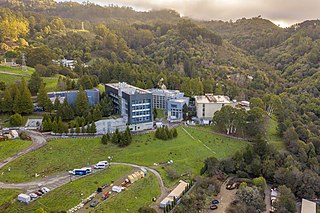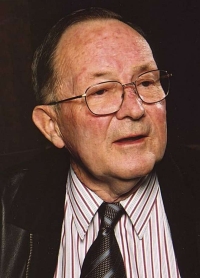
Economics is a social science that studies the production, distribution, and consumption of goods and services.

Lawrence Berkeley National Laboratory (LBNL) is a federally funded research and development center in the hills of Berkeley, California, United States. Established in 1931 by the University of California (UC), the laboratory is sponsored by the United States Department of Energy and administered by the UC system. Ernest Lawrence, who won the Nobel prize for inventing the cyclotron, founded the lab and served as its director until his death in 1958. Located in the Berkeley Hills, the lab overlooks the campus of the University of California, Berkeley.

Manuel Castells Oliván is a Spanish sociologist. He is well known for his authorship of a trilogy of works, entitled The Information Age: Economy, Society and Culture. He is a scholar of the information society, communication and globalization.

An institution is a humanly devised structure of rules and norms that shape and constrain social behavior. All definitions of institutions generally entail that there is a level of persistence and continuity. Laws, rules, social conventions and norms are all examples of institutions. Institutions vary in their level of formality and informality.

Chalmers Ashby Johnson was an American political scientist specializing in comparative politics, and professor emeritus of the University of California, San Diego. He served in the Korean War, was a consultant for the CIA from 1967 to 1973 and chaired the Center for Chinese Studies at the University of California, Berkeley from 1967 to 1972. He was also president and co-founder with Steven Clemons of the Japan Policy Research Institute, an organization that promotes public education about Japan and Asia.
Andre Gunder Frank was a German-American sociologist and economic historian who promoted dependency theory after 1970 and world-systems theory after 1984. He employed some Marxian concepts on political economy, but rejected Marx's stages of history, and economic history generally.

Arjun Appadurai is an Indian-American anthropologist who has been recognized as a major theorist in globalization studies. In his anthropological work, he discusses the importance of the modernity of nation-states and globalization. He is the former professor of anthropology and South Asian Languages and Civilizations at the University of Chicago, Humanities Dean at the University of Chicago, director of the Center on Cities and Globalization at Yale University, Provost and Senior Vice President for Academic Affairs at The New School, and professor of Education and Human Development Studies at New York University's Steinhardt School. He is currently professor emeritus of the Media, Culture, and Communication department in the Steinhardt School.

Yochai Benkler is an Israeli-American author and the Berkman Professor of Entrepreneurial Legal Studies at Harvard Law School. He is also a faculty co-director of the Berkman Klein Center for Internet & Society at Harvard University. In academia he is best known for coining the term commons-based peer production and his widely cited 2006 book The Wealth of Networks.

Paul Michael Romer is an American economist and policy entrepreneur who is a University Professor in Economics at Boston College. Romer is best known as the former Chief Economist of the World Bank and for co-receiving the 2018 Nobel Memorial Prize in Economic Sciences for his work in endogenous growth theory. He also coined the term "mathiness," which he describes as misuse of mathematics in economic research.
Robert Hinrichs Bates is an American political scientist specializing in comparative politics. He is Eaton Professor of the Science of Government in the Departments of Government and African and African American Studies at Harvard University. From 2000–2012, he served as Professeur associé, School of Economics, University of Toulouse.

The University of California, Berkeley, School of Information, also known as the UC Berkeley School of Information or the I School, is a graduate school and, created in 1994, the second newest of the schools at the University of California, Berkeley since the founding of the UC Berkeley College of Computing, Data Science, and Society in 2023. It was previously known as the School of Information Management and Systems (SIMS) until 2006. Its roots trace back to a program initiated in 1918 which became the School of Librarianship in 1926 and, with a broader scope, the School of Library and Information Studies in 1976. The program is located in the South Hall, near Sather Tower in the center of the campus.
Kenneth Guy Lieberthal is an American professor and politician known as an expert on Chinese politics, political economy, domestic and foreign policy, and on the evolution of US-China relations.

John Gerard Ruggie was the Berthold Beitz Research Professor in Human Rights and International Affairs at Harvard Kennedy School at Harvard University and an affiliated professor in international legal studies at Harvard Law School.

Samuel Stebbins Bowles, is an American economist and Professor Emeritus at the University of Massachusetts Amherst, where he continues to teach courses on microeconomics and the theory of institutions. His work belongs to the neo-Marxian tradition of economic thought. However, his perspective on economics is eclectic and draws on various schools of thought, including what he and others refer to as post-Walrasian economics.

Steven Chu is an American physicist and former government official. He is a Nobel laureate and was the 12th U.S. secretary of energy. He is currently the William R. Kenan Jr. Professor of Physics and Professor of Molecular and Cellular Physiology at Stanford University. He is known for his research at the University of California, Berkeley, and his research at Bell Laboratories and Stanford University regarding the cooling and trapping of atoms with laser light, for which he shared the 1997 Nobel Prize in Physics with Claude Cohen-Tannoudji and William Daniel Phillips.

Pranab Bardhan is an Indian economist who has taught and worked in the United States since 1979. He is Professor Emeritus of Economics at the University of California, Berkeley.

Michael W. Kirst is Professor Emeritus of Education at Stanford University and the longest serving President of California's State Board of Education.

Open source is source code that is made freely available for possible modification and redistribution. Products include permission to use the source code, design documents, or content of the product. The open source model is a decentralized software development model that encourages open collaboration. A main principle of open source software development is peer production, with products such as source code, blueprints, and documentation freely available to the public. The open source movement in software began as a response to the limitations of proprietary code. The model is used for projects such as in open source appropriate technology, and open source drug discovery.

Donald Jasper Harris, is a Jamaican-American economist and emeritus professor at Stanford University, known for applying post-Keynesian ideas to development economics. He was the first Black scholar granted tenure in the Stanford Department of Economics, and he is the father of Kamala Harris, the incumbent Vice President of the United States and 2024 Democratic presidential nominee, and of Maya Harris, a lawyer, advocate and writer.
Patrick Heller is an American sociologist and the director of the development research program at the Watson Institute for International and Public Affairs at Brown University.















